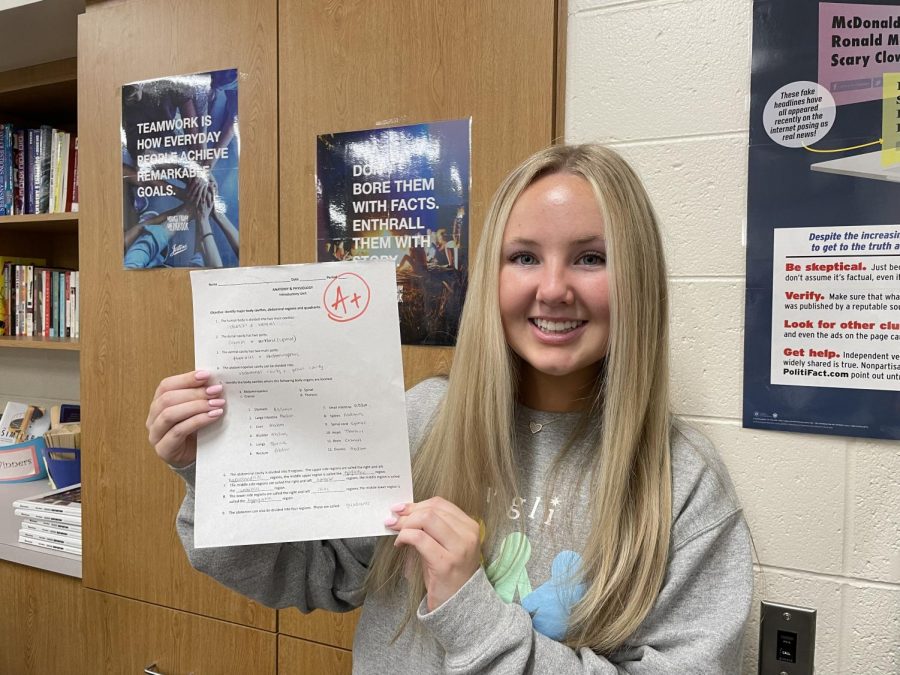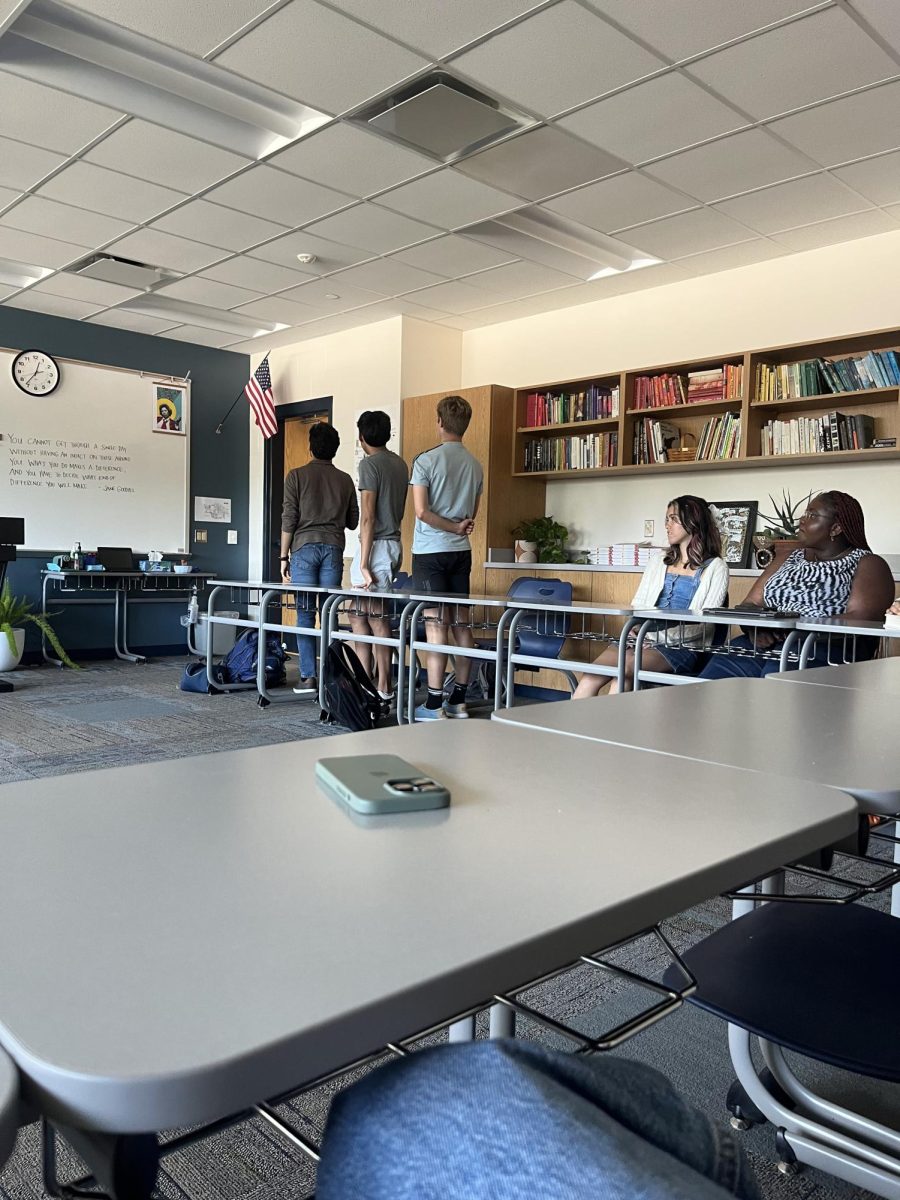Getting good grades, long considered a fundamental part of high school academic success, has exacerbated into an epidemic running rampant for years: straight-A student syndrome.
Straight-A student syndrome is the obsession with excelling in education at the expense of the education itself. The symptoms are seen on an everyday basis: students frantically copying down lecture notes, seeking out every extra credit point and declining invites to cram for an exam instead. These habits are all defining characteristics of the cookie-cutter straight-A student.
Grades are undoubtedly critical indicators of a student’s work ethic. They motivate students to perform well in school and open doors to post-secondary opportunities—but striving for perfection has its pitfalls.
Academics have turned into an undeclared rat race, which has had crippling effects on teenagers’ mental health. School counselors, teachers and parents alike hold high hopes for students to be high-achieving. A 2019 Pew Research Center study reported that 61 percent of teens aged 13-17 felt tremendous pressure to receive good grades. Rather than setting students up for success, schools and parents have burdened students with insatiable expectations.
For many high schoolers, prioritizing straight-As often correlates with sacrificing extracurricular activities. But this takes away from the primary purpose of high school: to prepare students for the real world. When students abandon hobbies to focus on school, they are inadvertently cheating themselves out of the real-world practice of work-life balance.
So what is the antidote?
Encouraging students to make time for their passions in their formative years will increase their zest for learning and in turn, produce fruitful results in terms of academic success.
Junior Gretchen Highberger shared her journey in creating an ideal balance between school and extracurriculars. “My freshman year, I exhausted myself trying to get every single possible point on every single assignment. I was also heavily involved in a lot of extracurriculars, but I wasn’t really contributing as much as I would have liked to.”
Highberger continued, “Two years later, I’ve realized that I am much happier when I make time for activities I enjoy and when I learn because I want to not because I have to. The interesting thing is my grades haven’t changed at all, but I’m so much healthier without the pressure I used to put on myself to always strive for 100 percent.”
Success may be evaluated numerically by college admission officers, but grades are not always an accurate depiction of a student’s brainpower and, more importantly, willpower. Letters on a report card do not encapsulate a student’s potential to excel in environments outside of high school.
College freshman Elizabeth Pischke felt the adverse effects of the extrinsic pressure she faced in high school to earn perfect grades. “In high school, I put so much pressure on myself to get good grades because of my obsession with perfectionism and because high school grades are a big factor in applying for scholarships,” she stated.
“But college is a whole new ballgame. What I’m learning is that it’s not so much about the letter grade but how I keep myself motivated to have a bright future,” Pischke continued.
Highberger and Pischke’s sentiments are shared by many students, and their experiences are even backed by scientific evidence. Research has shown that when students are intrinsically motivated, they are more likely to reap the benefits of education and retain more knowledge.
Conditioning students to seek fulfillment outside of quantitative evaluations is a skill far more transferable beyond high school than a straight-A transcript.
















Isabella H • Oct 20, 2021 at 8:36 am
this article is so relevant to all students and I can very much agree!
Vrinda V. • Oct 8, 2021 at 8:55 am
This is a very relatable article as so many students strive for perfection. It is important to work hard and strive for good grades but it is also important to balance outside work and social activities at the same time. Students can be successful while maintaining their mental health and social activities at the same time.
Abby Webster • Oct 5, 2021 at 5:12 pm
I believe this is a very accurate and relatable article. I have seen many students including myself push themselves to the extreme for an A. Studying hours on hours and missing memorable moments to put school ahead. While it is very important to have good grades and a good GPA keeping a healthy mental health has to come first as well. This article is very well relatable and very well written.
Devin • Sep 30, 2021 at 9:32 pm
I believe the best way to go about this obsession is to be sufficient in school work but also make time to explore the world and find different opportunities outside of school as well.
Jack • Sep 30, 2021 at 9:31 pm
I agree that often times we set unrealistic expectations on ourselves to achieve the highest grades possible and it comes with a large amount of stress. I can relate to the fact that in the beginning of high school I would constantly be studying and doing homework while missing out on fun social activities. I then found a balance between soccer, school and friends.